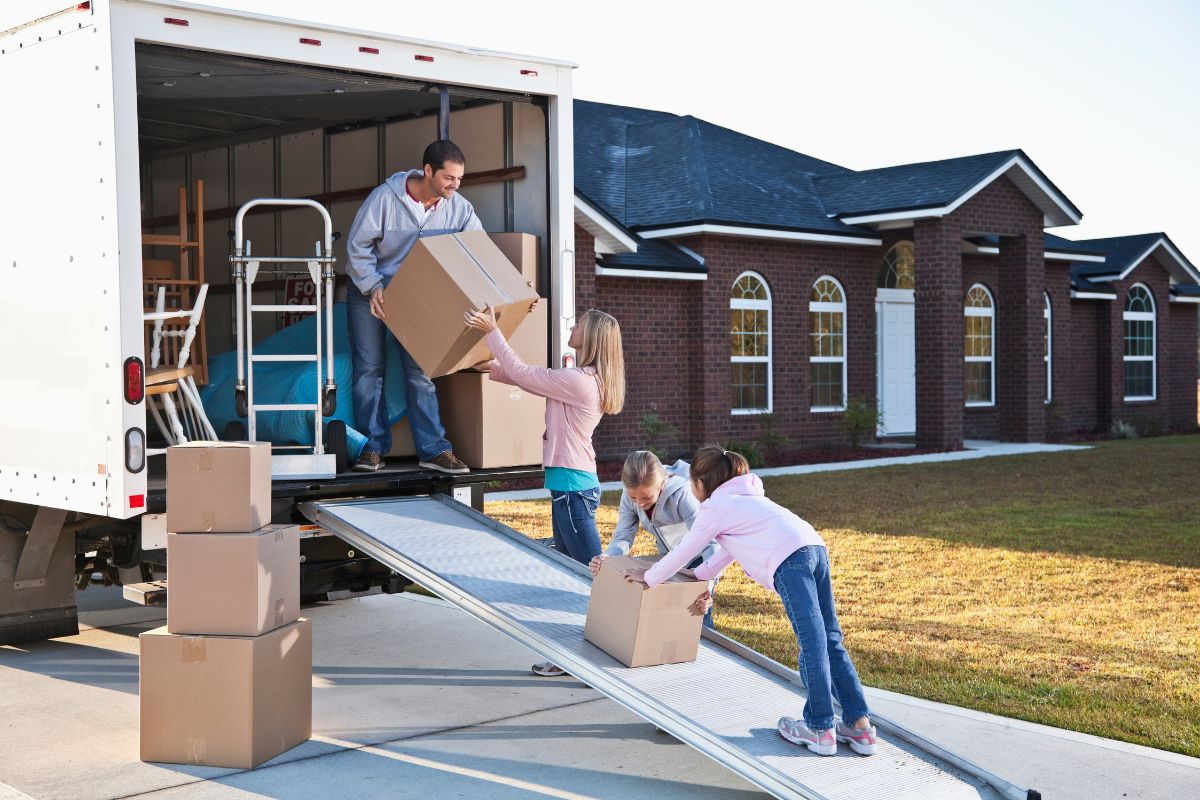While there are services out there aimed at eliminating problems like this, finding the right one isn't always easy. Of course, some people get good ones pretty quickly through recommendations, but for others, knowing how to find a moving company involves tons of research.
If you're in the latter category, it's time to alleviate the stress of searching for a pro mover. Instead of jumping from one idea to the next without good results, let's give you the perfect guide to help you find the best moving company just for you.
Step #1: Know Your Needs
Ask yourself a few questions that would help your search for "movers near my location" much simpler.
- What amount of load are you moving?
- Are there heavy belongings among your properties?
- How far are you moving? Locally or long-distance?
- Would you require storage services?
Here's the truth about some moving companies: not all transport clients' properties between states or countries. Some might not be able to move heavy properties, especially new moving companies.
Your first job is to create a list of what you have and want to move, coupled with the distance you are trying to transport them. Once you have settled this part, your search for the perfect moving company can truly begin.
Step #2: Get Referrals
Imagine this scenario: you go to a restaurant and have the most delicious and well-served meal or roast you have had in a long time; the chances you want to tell someone about it are high, right?
That's precisely how referrals work!
Intentionally or not, positive comments about a service rendered can help someone in need of something similar.
Two ways you can get referrals include:
- From family, friends, acquaintances:
Asking around for good services has and will always be a good way to get help. You most likely know someone (family, friends, co-worker) who has used a moving company before and had a good experience.
All you need to do is meet them for recommendations. It could even be a friend's friend, a neighbor, or a total stranger. Asking around should be among the first ways how to find a good moving company.
- Check online reviews:
It's the digital age—everything is online! A quick "moving companies near me" search is all you need to get recommendations online. However, while it's easy, the task isn't complete. You will need to read through reviews on forums or comments on company pages—there lies the truth.
When doing this, be vigilant about which reviews are authentic and which are falsified. Try to find recommendations with balanced and honest reviews. It mustn't be all bad and can't be all great. You can even check out forums with verified reviewers; that way, you know you're reading human comments and not some bot-generated review.
Step #3: Check for Licensed Credentials
At this point, your filtration begins! Assuming you have compiled a list of moving companies you intend to use, the next thing is to confirm their licensing and credentials.
The Better Business Bureau should be your go-to spot to check if your choices are among the list of accredited movers. A plus for you is that they offer a review section where you can read comments on each company's history services.
Depending on how far you're moving, your choice of movers will require specific licensing.
- For a local move:
Your moving company doesn't necessarily need a U.S. Department of Transportation (U.S. DOT) number for those moving within the state. However, certain licensing and permit requirements might apply depending on the state.
For instance, Iowa and Illinois both require all movers within their states to have certification and permits from the local Department of Transportation or Commerce Commission.
- For an interstate move:
Let's say you are relocating between Texas and California. Any moving company transporting such a route must have a Federal Motor Carrier Safety Administration (FMCSA) license.
To confirm this licensing from FMCSA, check for a special U.S. DOT number issued to every licensed moving company. Without this, it's proof that such a company isn't accredited to move between states in the U.S.
- For an international move:
If you're moving properties between countries from or to the U.S., your chosen mover must have a Federal Maritime Commission (FMC) number or a Freight Forwarder permit.
Moreover, you can also confirm the mover is a member of a moving federation like FIDI Global Alliance or has certification from the American Moving and Storage Association (AMSA).

Step #4: Review Multiple Quotes
Your journey of finding movers near you is almost complete.
Still on your list of good quality movers with licensing and permits to operate the distance you are moving, the next step is to get rough estimates on the cost.
While some movers can give you a quick estimate, understand that it's subject to change. The Better Business Bureau describes the best and most accurate estimates as those given after the mover visits your home in person.
That way, you know exactly what properties you have that are causing a spike or drop in the estimated quote you first got online. Moreover, ensure that the quote given is completely broken down. Know what it covers, from insurance to liability and mover's potential damage fees.
Note:
The FMCSA recommends you get at least three written quotes from different moving companies before making a decision.
Step #5: Perform A Deep Dive Customer Experience Review
By the time you finish all the "movers near my location" and "how to find local movers" searches, confirming licensing, and getting quotes, you will probably have narrowed your list down to 1 to 3 moving companies.
From this point on, you'll find honest scrutiny on these movers. Look for comprehensive feedback that explains the experience of their past clients.
- How well did they handle belongings?
- If issues arise, how did they resolve them?
- What's the overall quality of service?
At this point, you already know they are good and offer great services, but intentionally look for consistent reviews—praise or complaints.
Remember that this is subjective and will differ between people. What you consider a deal breaker might be nothing for the next person. So, while you're looking for faults, also ask yourself if it's something to overlook.
Step #6: Ask Helpful Questions
Knowing the right questions to ask is important when it comes to finding and hiring a good moving company.
Don't just ask questions because they are expected; ask because they could help with your move!
Some helpful questions to ask your moving company include:
- What extra services do you offer?
- What experiences do you have with a similar move?
- Is the estimate given binding or non-binding?
- Do you have a rescheduling policy?
- How do you handle valuable and fragile items?
- Are there any limitations or restrictions you should know about?
- How are lost or damaged properties handled?
- Time of arrival on move day?
Key Takeaway—how to find a moving company
Being armed with the right knowledge on how to find a moving company is an invaluable asset that separates your properties from the hands of pretenders or wannabe movers pros.
While finding the right movers to hire might take some time, it's a better and much easier route than going through a series of regrets.
As a reminder,
- Ask around for good referrals
- Do you research
- Check online reviews
- Confirm licensing and qualifications
- Get a quote
Good luck!






Share: